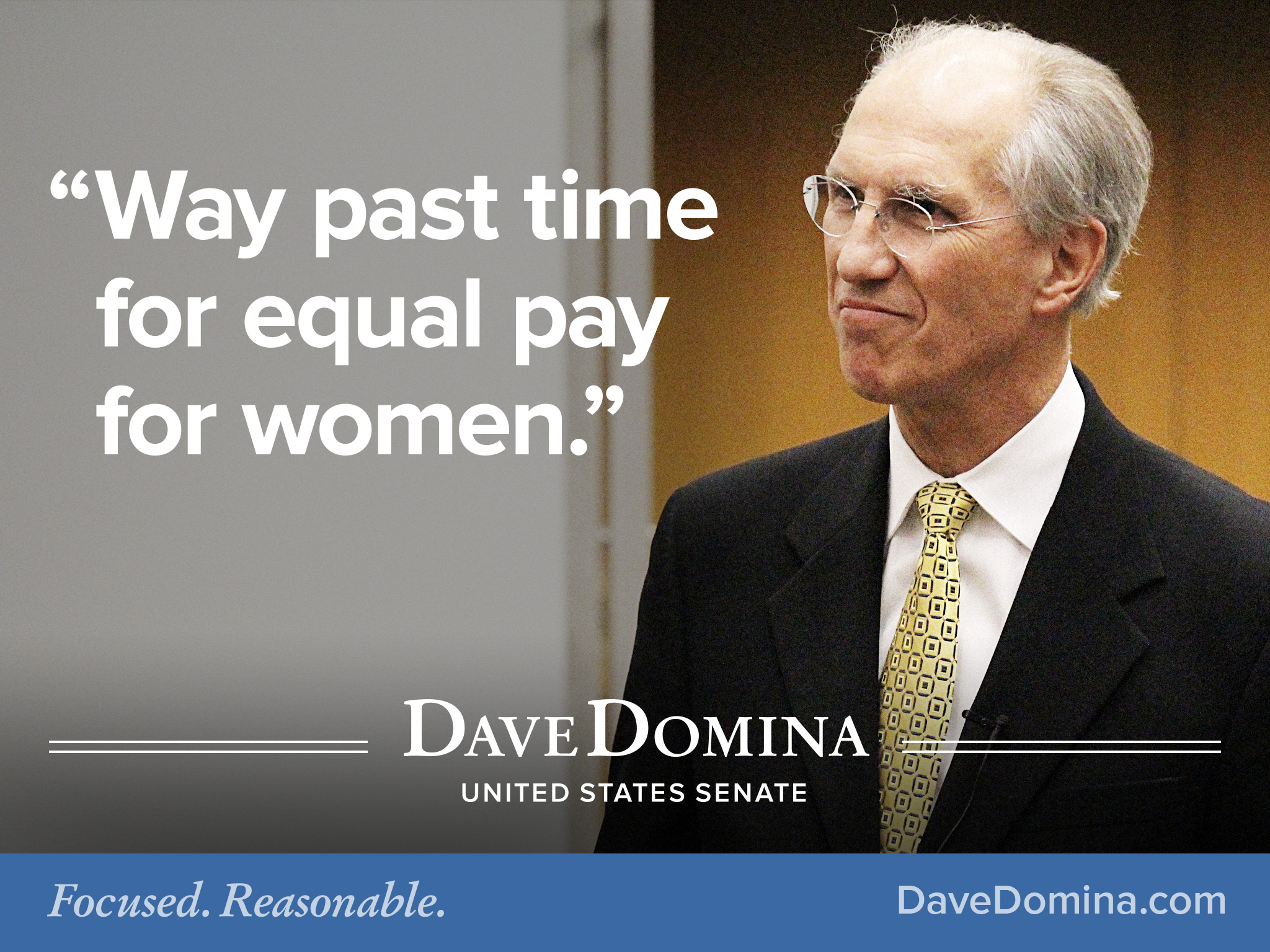 Women’s Issues
Women’s Issues
As a son, brother, husband, father, grandfather, and lawyer advocate for women - I can tell you as a society we must get serious about leveling the playing field.
History:
Women in the United States confront special political and legal concerns. Unfortunately, this has been the case for women since the birth of our nation. While things have changed, problems remain. The current problems must be understood in a proper historical context.
When the Constitution of the United States was written, women did not fare well. No women were eligible for citizenship, qualified to vote, or permitted to hold public office.
Things did not change for women with the Civil War. When it was over, the Thirteenth Amendment ended slavery and the Fourteenth Amendment guaranteed rights and privileges, but was not perceived as extending to women; it too was written with a view toward men.
The women’s suffrage movement finally led to enactment of the Nineteenth Amendment, guaranteeing women’s suffrage or the right to vote. This did not happen until 1919.
The civil rights movement gave rise to an attempt to amend the US Constitution to add the equal rights amendment. If adopted, it would have eliminated all legal discrimination based upon gender. But, the amendment was not enacted.
Current Issues:
Issues confronting women now are myriad, complex, and not always interrelated. Some include:
- Equal pay
- Women’s health
- Sexual harassment
My position about gender fairness was simple: there should be no provision of law, act of government, or regulatory oversight process that treats citizens, employees, employers, voters, students, patients, or children differently on the basis of gender.

Gender Fairness – Equal Pay:
Statistically, current evidence suggests that women’s compensation lags behind men for similar positions. In a report released in September 2011, the U.S. Census Bureau wrote that in 2010, the female-to-male earnings ratio of full-time, year-round workers was 0.77.” Translated into dollars, that means in 2010, women working full-time earned 77 cents for every dollar earned by men working full time.[1]
There is no logic and no sound basis whatsoever for any argument that women should be paid less than men for the same work. I have heard no one argue that compensation for similar work should vary with gender.
These rules should be a basic part of the law:
- Gender favoritism or preference is impermissible and forbidden for all positions except those few, in rare settings, where gender is a criterion for employment.
- Neither gender should be paid more or less than the other for the same work in the same or parallel positions.
- Performance is gender neutral. Compensation must be too.
- The Equal Paycheck Act passed by the United States Senate makes genuine efforts to remedy historical disparities.
Gender Fairness – Women’s Health:
Healthy women make healthy families, schools, and communities. Families function at a lower level with an unhealthy mother than an unhealthy father.
Yet, until adoption of the Affordable Care Act and even after its adoption insofar as many insurance company practices are concerned, many women are subject to insurance industry discrimination. This discrimination has many forms. They include:
- Limited health care options.
- Limited access to the latest medical information because research dollars are spent disproportionally on illnesses of greater concern to men than women.
- Refusal to allow many forms of treatment uniquely necessary for women, particularly because of breast cancer.
- Intervention by big government into the individual lives of women in an effort to limit their own decision-making and choices about their bodies, health, and physical circumstances. This includes decisions about reproductive issues.
In the matter of health, these policy statements should be incorporated into, and made a part of, the basic statutory law of the United States:
- All discrimination in health insurance, health care, and access to health care must be end.
- All federal support for medical research—including incentives through tax deductions, credits, or other loopholes—must be unavailable to any taxpayer whose research disproportionately disfavors women.
- No insurance company may be permitted to refuse coverage to any women by reason of any pre-existing condition.
- Preventive medical care to protect women against detectible diseases must be covered by every insurance policy as a matter of law. This would include appropriate baseline and subsequent healthcare screening protocol.
Violence Against Women: The Current Law & Needs for Changes:
I support protection and expansion of the Violence Against Women Act of 1994. This important legislation has improved criminal justice response to violence against women by:
- Strengthening federal penalties for repeat sex offenders and creating a federal “rape shield law” intended to prevent offenders from using victims’ past sexual conduct to attack them as witnesses at a rape trial.
- Eliminating the burden that a rape victim must bear the expense of her own medical examination or the expenses of a protection order.
- Requiring that a victim’s protection order be recognized in all state, tribal, and territorial jurisdictions of the United States.
- Increasing rates of prosecution, conviction, and sentencing of offenders.
- Training for over 500,000 law enforcement officers, prosecutors, judges, and other personnel annually to assure prompt responses and judicial reactions to the realities of domestic and sexual violence.
- Providing additional tools to protect Native American women.
Amending the Uniform Code of Military Justice:
The most urgent area where more effort is needed may be the United States Armed Forces. Sexual assault on college campuses is a close and competing second. I favor reforms to the Uniform Code of Military Justice.
College Campus Protection:
Recognizing that at least 20% of all women on college campuses experience at least one sexual assault while pursuing a four-year degree, it is past time for the federal government to lend its power and authority to help states prevent sexual assault of college students, particularly women. Generally, these crimes must be prosecuted under state law. Parallel federal criminal proceedings are not necessary or appropriate because they would be duplicative, expensive, and unnecessary so long as the state systems are used effectively.
Conclusion:
The law must evolve to assure that women are treated with the respect and dignity of equal persons under every aspect of the law and in all segments of society. Mores have not changed to conform with constitutional principles on a timely basis. The law must step in to achieve these objectives.



